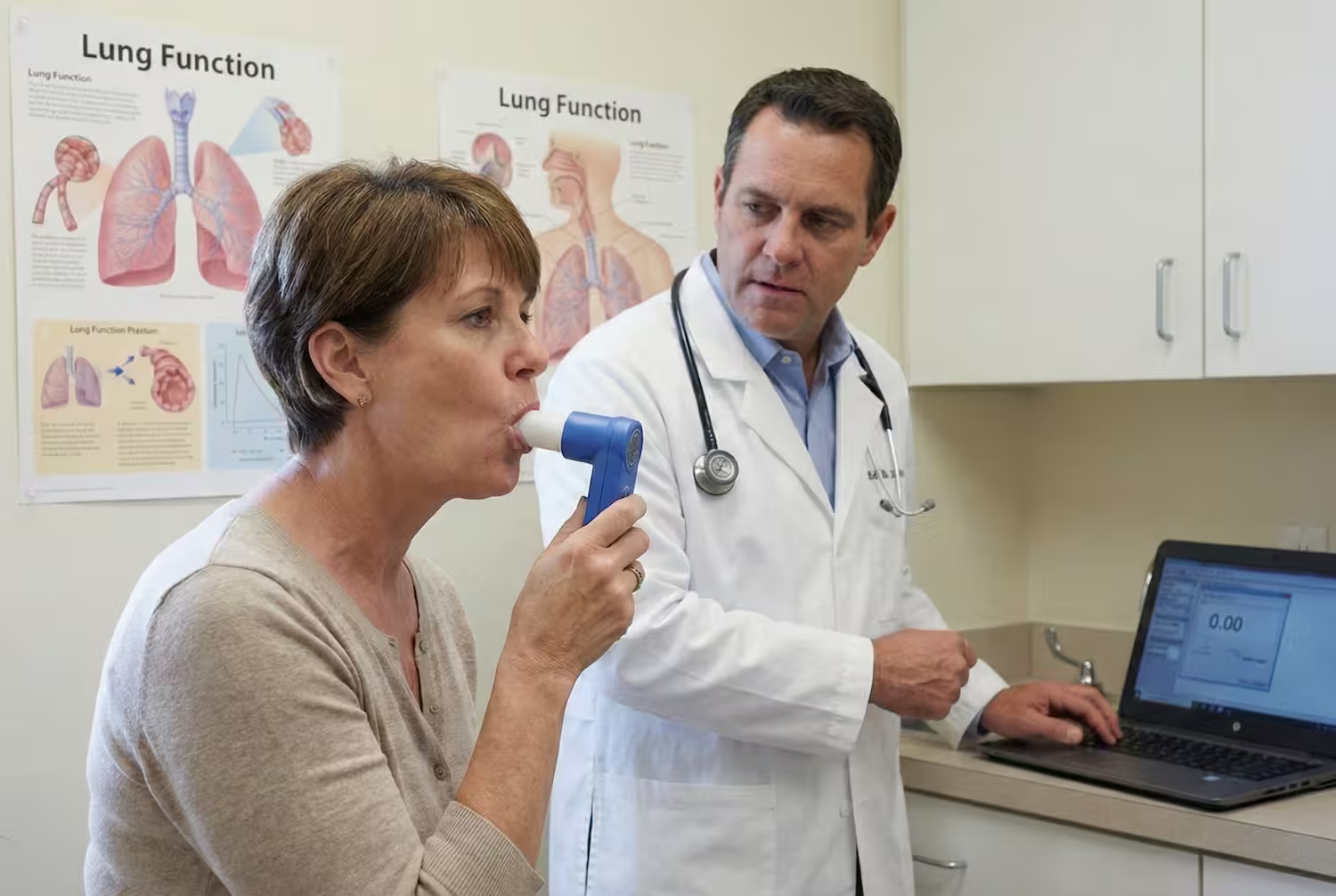
The cardiovascular system includes the heart, blood vessels, and lungs and helps transport oxygen and nutrients to tissues, as well as eliminate waste products such as carbon dioxide. This complex system enables your body to function optimally, but some conditions can reduce the efficiency of the cardiovascular system and cause a decline in overall health.
Hypertension, stroke, and heart disease affect millions of people worldwide. While each condition has unique symptoms and causes, they are all linked by their detrimental impact on the cardiovascular system.
Below is a more detailed look at these conditions, their symptoms, and how they are related to one another.
What Is Hypertension?
Hypertension is a condition that involves chronically high blood pressure.
Blood pressure is a measurement that determines how much pressure is exerted on the walls of your arteries during heart contraction (systole) and heart relaxation (diastole). A typical blood pressure reading is written as systolic blood pressure / diastolic blood pressure and tends to be around 120/80 mm Hg.
Having healthy blood pressure helps to promote proper perfusion of oxygen to tissues without causing unnecessary wear and tear on the heart and other organs. On the other hand, high blood pressure can indicate health concerns like atherosclerosis, the hardening of artery walls due to plaque buildup.
The importance of blood pressure is why nearly all healthcare settings utilize blood pressure monitoring for patients.
What Are the Symptoms of Hypertension?
Hypertension affects nearly half of the United States adult population — and a lot of the time, it can go completely undetected until it causes a larger issue.
Hypertension is commonly referred to as the “silent killer” because of its lack of symptoms. When symptoms do arise, they tend to be the result of years of wear and tear.
Some common symptoms that people may experience with hypertension include headaches, shortness of breath, chest pain, tinnitus, or visual changes.
Generally, the best way to detect hypertension is to check your blood pressure regularly. You may do this during an annual doctor's visit, but you can also start keeping track of your blood pressure on your own.
This can help detect hypertension early and help you get treatment before it has time to negatively impact your overall health. Hypertension is highly treatable, but many of the complications of unmanaged hypertension (like kidney disease) are less treatable.
Getting treatment sooner rather than later can significantly improve long-term health outcomes.
What Is a Stroke?
A stroke is a cardiovascular emergency in which the supply of blood to part of your brain is significantly reduced or blocked.
There are three main types of strokes:
- Ischemic strokes: Ischemic strokes occur when an artery is blocked by a blood clot or other obstruction and prevented from circulating blood in the brain.
- Hemorrhagic strokes: Hemorrhagic strokes occur when a blood vessel ruptures in your brain, preventing proper blood circulation.
- Transient ischemic attacks (TIAs): Also known as mini-strokes, TIAs occur when a blockage temporarily restricts blood flow to the brain. TIAs tend to resolve on their own.
The lack of blood flow to the brain can cause permanent brain damage and brain cell death if not treated in a timely manner.
What Are the Symptoms of a Stroke?
The symptoms of a stroke can vary depending on the type of stroke and where in the brain it occurs. Generally, symptoms include sudden weakness or numbness on one side of the body, facial droop, difficulty speaking or understanding speech, and vision problems.
What Is Heart Disease?
Heart disease is a term used to describe a range of cardiovascular diseases that can affect the heart, including coronary artery disease, heart failure, heart valve disease, and heart arrhythmias.
These conditions can damage the heart muscle and narrow the arteries that supply blood to the heart over time. Eventually, these conditions can lead to a higher risk of heart attack or other serious health problems such as heart failure.
Heart disease is the leading cause of death in the United States.
What Are the Symptoms of Heart Disease?
The symptoms of heart disease can vary depending on the specific condition. Some common symptoms include chest pain or discomfort, shortness of breath, fatigue, and swelling in the lower extremities.
Heart disease tends to come as a result of poor health habits over an extended period of time, and its symptoms may not be glaringly obvious. Generally, the best way to determine if you have heart disease is to consistently go in for your annual doctor's visits. A doctor can evaluate your health over time and help identify any cardiovascular disease that may be present.
Do Hypertension, Stroke, and Heart Disease Share Causes?
Hypertension, stroke, and heart disease share many risk factors. Some of the most common risk factors for these conditions include obesity, physical inactivity, smoking, high cholesterol, and diabetes.
All of these risk factors lend themselves to an unhealthy lifestyle, and taking the time to get physical activity, eat a healthy diet, and take care of yourself can help significantly reduce your risk.
How Do Hypertension, Stroke, and Heart Disease Affect Each Other?
Hypertension, stroke, and heart disease are all closely related and can affect each other in various ways.
For example, hypertension is a major risk factor for stroke and can increase the risk of heart disease. When blood pressure is consistently high, it can damage the blood vessels and increase the risk of blood clots and other complications.
Having a stroke can also increase the risk of a heart attack, especially if you have coronary artery disease (CAD). Similarly, heart disease can increase the risk of stroke by causing plaque buildup in the arteries and increasing the risk of blood clots.
Does Hypertension Increase the Risk of Stroke and Heart Disease?
Hypertension is a significant risk factor for both stroke and heart disease. Current statistics show that individuals with hypertension are three to four times more likely to suffer a stroke and two to three times more likely to develop heart-related conditions such as heart failure than those with normal blood pressure.
How Can I Support My Heart Health?
One of the first steps you should take if you suspect your heart health has declined is to get evaluated by a healthcare professional such as your primary care physician or cardiologist. You should also let your doctor know if you have a family history of heart disease, hypertension, or stroke.
If you have any of the conditions above or are at an increased risk of experiencing an event like a stroke, your doctor can put you on a treatment plan to help you reduce your risks and get better.
Aside from invasive procedures and medications to lower your blood pressure, your healthcare provider may recommend that you enroll in a cardiac rehabilitation program to help you make beneficial lifestyle changes.
Cardiac rehab programs, such as those offered by Carda Health, work with patients to help improve their cardiovascular health through monitored exercise, education on healthy eating, and support for living a healthy lifestyle.
Carda health is a unique cardiac rehab, as it is an entirely virtual program. Eligible patients are sent remote vitals monitoring equipment and paired with their own exercise physiologist. The physiologist can work with them to address their concerns and develop an action plan for how they can best foster a more heart-healthy lifestyle.

The Bottom Line
Hypertension, stroke, and heart disease are closely related conditions that can have a significant impact on an individual's health and quality of life. While each condition is different from one another, they share common causes and can affect each other in various ways.
Fortunately, there are many steps individuals can take to support their heart health and reduce their risk of developing these conditions. By maintaining a healthy lifestyle, managing risk factors, and staying in close communication with healthcare providers, individuals can take control of their heart health and reduce the risk of hypertension, stroke, and heart disease.
Conditions like stroke and heart disease are highly preventable when you take preventative steps, like reducing high blood pressure, through living an active and healthy lifestyle. Carda Health can help you on this journey and can provide you with the support you need to make those habits stick.
Sources:
Facts About Hypertension | CDC
Hypertension, Angiotensin, and Stroke: Beyond Blood Pressure | American Heart Association







